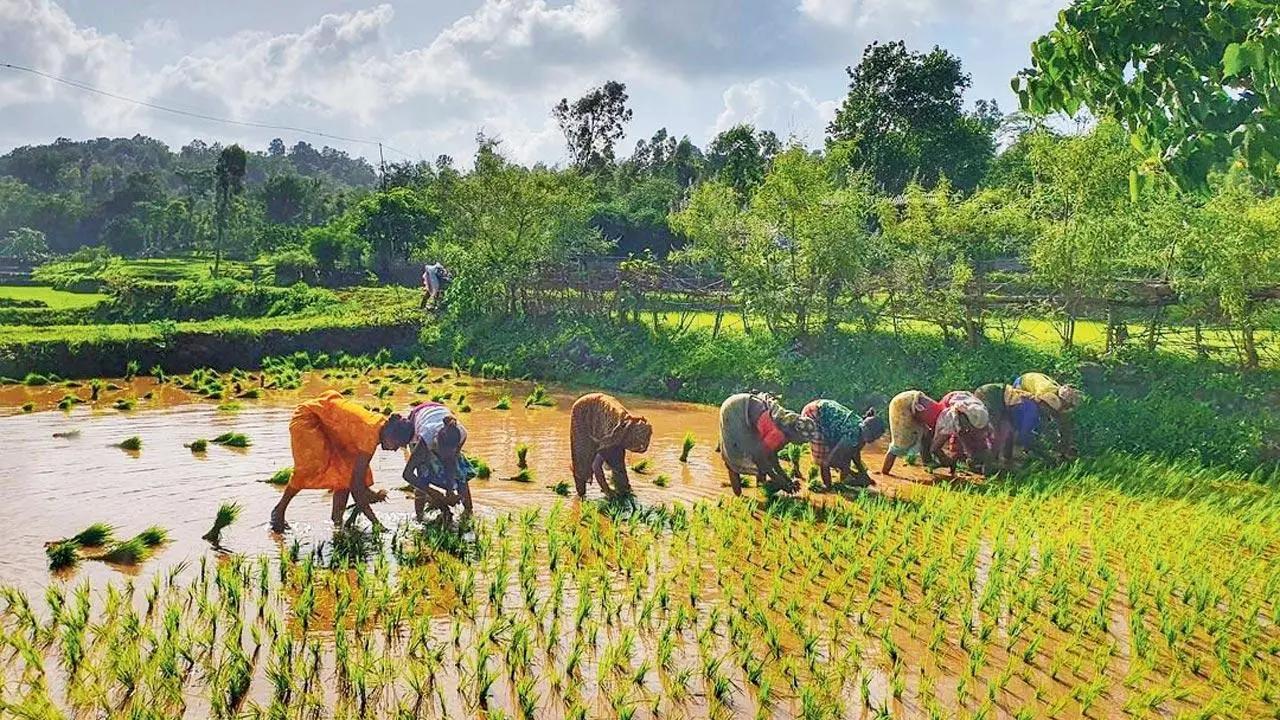Farmers in border villages of Jammu and Kashmir are harvesting their crops early amid rising tensions following the Pahalgam terror attack, as authorities and locals brace for further unrest

Fear among the border communities has led many to decide whether to harvest or abandon crops as fodder for cattle, prioritising their safety over potential agricultural losses.
Farmers in the border regions of Jammu and Kashmir have begun harvesting their crops prematurely due to escalating tensions following the recent terror attack in Pahalgam.
According to ANI, local farmer Asghar Husain Shah from Gulpur Panchayat expressed sorrow over the attack and detailed the prevailing situation. Speaking to ANI, he said, "Neighbouring Panchayats such as Karma, Kasaliya, Dawar, and Noorkote are situated close to the border. After the Pahalgam incident, our area has been placed on high alert. We strongly condemn the attack and are deeply saddened by it."
He further explained, "Due to the prevailing tension, we have commenced early harvesting. In uncertain times like these, anything can happen, and we must be prepared. We aim to complete the harvest quickly to avoid major losses should the situation deteriorate."
As per ANI, another farmer, Mushtaq, was seen working alongside other villagers, hastily harvesting corn amid the growing anxiety. "What can one do if there is firing near the border? Farmers are working rapidly despite the fear. The situation is worsening every day. Out of fear, people have started harvesting their crops early," he said.
Meanwhile, Khetrapal Sharma, the Pradhan of Shri Sanatan Sabha, also spoke to ANI, condemning the Pahalgam terror attack. "People across India and the world have denounced the attack. Incidents originating from across the border continue to disturb life in Jammu and Kashmir," he remarked.
He added that there is widespread anger in the country following the attack and noted that even previously peaceful border districts are now uneasy. "With the harvest season upon us, farmers are worried about their livelihoods. They are choosing to harvest prematurely rather than risk losing everything. Pakistan’s continued provocations have heightened fears," Sharma said.
Fear among the border communities has led many to decide whether to harvest or abandon crops as fodder for cattle, prioritising their safety over potential agricultural losses.
In addition to the rising tensions, Jammu and Kashmir has also been grappling with natural calamities. Following heavy rains on 20 April, the Ramban district experienced devastating landslides and flash floods. The Jammu-Srinagar National Highway was blocked, and at least three lives, including those of two children, were lost after house collapses in Bagahana village.
PDP Chief Mehbooba Mufti addressed the press, highlighting the widespread damage caused by the weather. She called for compensation for farmers whose crops, such as basmati rice, apple, and almond trees, have suffered due to strong winds.
The terror attack on 22 April, which occurred around 2 pm at the Baisaran meadow near Pahalgam, has led to a surge of political unity. Leaders across parties attended an all-party meeting convened by Jammu and Kashmir Chief Minister Omar Abdullah, collectively condemning the heinous act.
Meanwhile, National Investigation Agency (NIA) teams, stationed at the terror site since 23 April, have intensified efforts to gather evidence, questioning eyewitnesses and continuing search operations.
The Indian Army remains on high alert, launching operations to neutralise the perpetrators. Nationwide, protests have erupted, with demonstrators demanding a strong response to Pakistan’s role in the Pahalgam terror attack.
(With inputs from ANI)
 Subscribe today by clicking the link and stay updated with the latest news!" Click here!
Subscribe today by clicking the link and stay updated with the latest news!" Click here!








